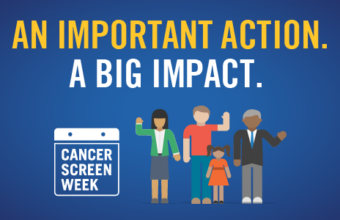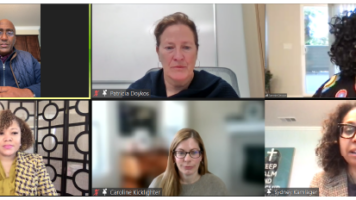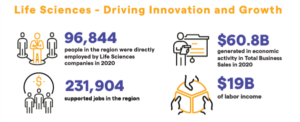Monthly Newsletter
Biocom’s GrowLABio Initiative to Expand Bioscience Industry in Los Angeles Region
November 2021
Biocom Los Angeles recently hosted its inaugural GrowLABio meeting with a focus on the capacity of economic and public finance tools to aid in the expansion of the bioscience industry in Los Angeles County and greater local region.
According to Biocom’s 2021 Economic Impact Report, LA County’s bioscience industry is home to approximately 3,876 life science establishments; employs 96,484 people; generates $60.8 billion in county economic output; increases labor income by $19 billion; and received $1.9 billion in NIH research awards in 2020. While this biosciences cluster is flourishing in many areas, there are significant challenges to continued and sustained growth of the industry in the region.
Based upon recent economic impact data and anecdotal information from biotech stakeholders, it is clear that the biggest challenges to growth of the industry are lack of infrastructure, affordable housing and transportation to serve a very diverse workforce. One of the most pressing issues is the lack of wet lab and shared lab space availability. While there has been incredible growth of the bioscience industry in Los Angeles County over the past several years, there is currently only a 1.5 percent vacancy rate in the region and a 3 percent vacancy rate nationwide.
To address these challenges, Biocom California launched and is leading the GrowLABio initiative with community partners — to convene the necessary stakeholders and facilitate the right conversations to address the immediate impediments to the industry’s growth in the region. With the lack of space and appropriate infrastructure for the industry to grow, GrowLABio’s priorities are to:
- Develop an inventory or database of assets – real, proposed, and potential – to connect the area as a multi-county life sciences “mega-region.” (including Ventura and Orange Counties)
- Create a market ‘gap’ and needs analysis; and
- Build a cohesive regional strategy to develop of new bioscience campuses including creation of a comprehensive playbook for campus development, which outlines appropriate zoning, entitlements, utility needs, special space requirements.
Key takeaways from the first GrowLABio task force meeting include:
- The time is now: the greater LA region is the next logical life science/bioscience hub given their space, talent, investment and government willingness to support their local ecosystem;
- There are new public and private funding sources that could be available and new legislation may help tailor other funding sources to assist the growth of the life science industry;
- The biggest and most immediate constraint to growing the bioscience industry is finding appropriate space to create labs and life sciences campuses. Additional wet lab and shared lab space is needed to foster the growth and to unleash the wealth of innovation that already exists here; and
- There is a unique opportunity to reimagine what a bioscience hub can and should look like. By working together to understand what resources (land, government support/incentives, talent) exist and how to apply the best practices from other established hubs, as well as learning from those hubs, LA biosciences can work towards creating new campuses that link to affordable housing, transportation, and other key infrastructure/ecosystem needs to accommodate for continued future growth at the rates we’re currently experiencing.
GrowLABio will help create more lab space and life sciences jobs – to accelerate the pathway from NIH grant to research lab to incubator to life sciences campus to patient. For more information about GrowLABio or to participate, contact Biocom Los Angeles at: (213) 943-2920.
Spread the Word about Cancer Screen Week (December 6 – 10, 2021)

According to the American Cancer Society, one in three people will be diagnosed with cancer in their lifetime. Approximately 608,570 Americans are expected to die from cancer in 2021. Regular screening can help find certain cancers early, when they are most likely to be treated successfully. Cancer Screen Week is a public health initiative founded by the American Cancer Society, Stand Up to Cancer, Genentech and Optum to increase awareness of the benefits of screening for early detection of certain cancers. This nationwide collaborative effort to raise awareness about recommended cancer screening occurs the first full week of December each year.
Screening refers to tests and exams used to find cancer in people who don’t have symptoms. Early detection means finding and diagnosing cancer earlier than if a person would wait for symptoms to start. Screening increases the chance of detecting certain cancers early when they might be easier to treat.
Visit www.CancerScreenWeek.org to learn more about the potentially life-saving benefits of cancer screening and download helpful resources for talking with a health provider.
.
For more information, contact Patty Cooper with the California Biotechnology Foundation at 916-764-2434 or [email protected].



